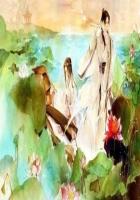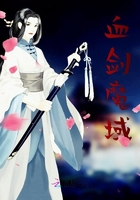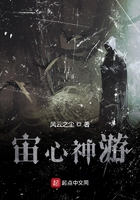Conjecturing that Pompey the Great was fled toward Egypt or Africa, Cato resolved to hasten after him; and having taken all his men aboard, he set sail; but first to those who were not zealous to continue the contest, he gave free liberty to depart. When they came to the coast of Africa they met with Sextus, Pompey's youngest son, who told them of the death of his father in Egypt; at which they were all exceedingly grieved, and declared that after Pompey they would follow no other leader but Cato. Out of compassion, therefore, to so many worthy persons, who had given such testimonies of their fidelity, and whom he could not for shame leave in a desert country, amidst so many difficulties, he took upon him the command, and marched toward the city of Cyrene, which presently received him, though not long before they had shut gates against Labienus. Here he was informed that Scipio, Pompey's father-in-law, was received by King Juba, and that Attius Varus, whom Pompey had made governor of Africa, had joined them with his forces. Cato therefore resolved to march toward them by land, it being now winter; and got together a number of asses to carry water, and furnished himself likewise with plenty of all other provision, and a number of carriages. He took also with him some of those they call Psylli, who cure the biting of serpents, by sucking out the poison with their mouths, and have likewise certain charms, by which they stupefy and lay asleep the serpents.
Thus they marched seven days together, Cato all the time going on foot at the head of his men, and never ****** use of any horse or chariot. Ever since the battle of Pharsalia, he used to sit at table, and added this to his other ways of mourning, that he never lay down but to sleep.
Having passed the winter in Africa, Cato drew out his army, which amounted to little less than ten thousand. The affairs of Scipio and Varus went very ill, by reason of their dissensions and quarrels among themselves, and their submissions and flatteries to King Juba, who was insupportable for his vanity, and the pride he took in his strength and riches. The first time he came to a conference with Cato, he had ordered his own seat to be placed in the middle, between Scipio and Cato; which Cato observing, took up his chair and set himself on the other side of Scipio, to whom he thus gave the honour of sitting in the middle, though he were his enemy, and had formerly published some scandalous writing against him. There are people who speak as if this were quite an insignificant matter, and who, nevertheless, find fault with Cato, because in Sicily, walking one day with Philostratus, he gave him the middle place, to show his respect for philosophy. However, he now succeeded both in humbling the pride of Juba, who was treating Scipio and Varus much like a pair of satraps under his orders, and also in reconciling them to each other. All the troops desired him to be their leader; Scipio, likewise, and Varus gave way to it, and offered him the command; but he said he would not break those laws which he sought to defend, and he, being but propraetor, ought not to command in the presence of a proconsul (for Scipio had been created proconsul), besides that people took it as a good omen to see a Scipio command in Africa, and the very name inspired the soldiers with hopes of success.
Scipio, having taken upon him the command, presently resolved, at the instigation of Juba, to put all the inhabitants of Utica to the sword, and to raze the city, for having, as they professed, taken part with Caesar. Cato would by no means suffer this; but invoking the gods, exclaiming and protesting against it in the council of war, he with much difficulty delivered the poor people from this cruelty.
And afterwards, upon the entreaty of the inhabitants, and at the instance of Scipio, Cato took upon himself the government of Utica, lest, one way or the other, it should fall into Caesar's hands; for it was a strong place, and very advantageous for either party. And it was yet better provided and more strongly fortified towers, and who brought in great store of corn, repaired the walls, erected towers, and made deep trenches and palisades around the town. The young men of Utica he lodged among these works, having first taken their arms from them; the rest of the inhabitants he kept within the town, and took the greatest care that no injury should be done nor affront offered them by the Romans. From hence he sent great quantity of arms, money, and provision to the camp, and made this city their chief magazine.
He advised Scipio, as he had before done Pompey, by no means to hazard a battle against a man experienced in war, and formidable in the field, but to use delay; for time would gradually abate the violence of the crisis, which is the strength of usurpation. But Scipio out of pride rejected this counsel, and wrote a letter to Cato, in which he reproached him with cowardice; and that he could not be content to lie secure himself within walls and trenches, but he must hinder others from boldly using their own good sense to seize the right opportunity. In answer to this, Cato wrote word again, that he would take the horse and foot which he had brought into Africa, and go over into Italy, to make a diversion there, and draw Caesar off from them. But Scipio derided this proposition also. Then Cato openly let it be seen that he was sorry he had yielded the command to Scipio, who he saw would not carry on the war with any wisdom, and if, contrary to all appearance, he should succeed, he would use his success as unjustly at home. For Cato had then made up his mind, and so he told his friends, that he could have but slender hopes in those generals that had so much boldness and so little conduct; yet if anything should happen beyond expectation, and Caesar should be overthrown, for his part he would not stay at Rome, but would retire from the cruelty and inhumanity of Scipio, who had already uttered fierce and proud threats against many.













